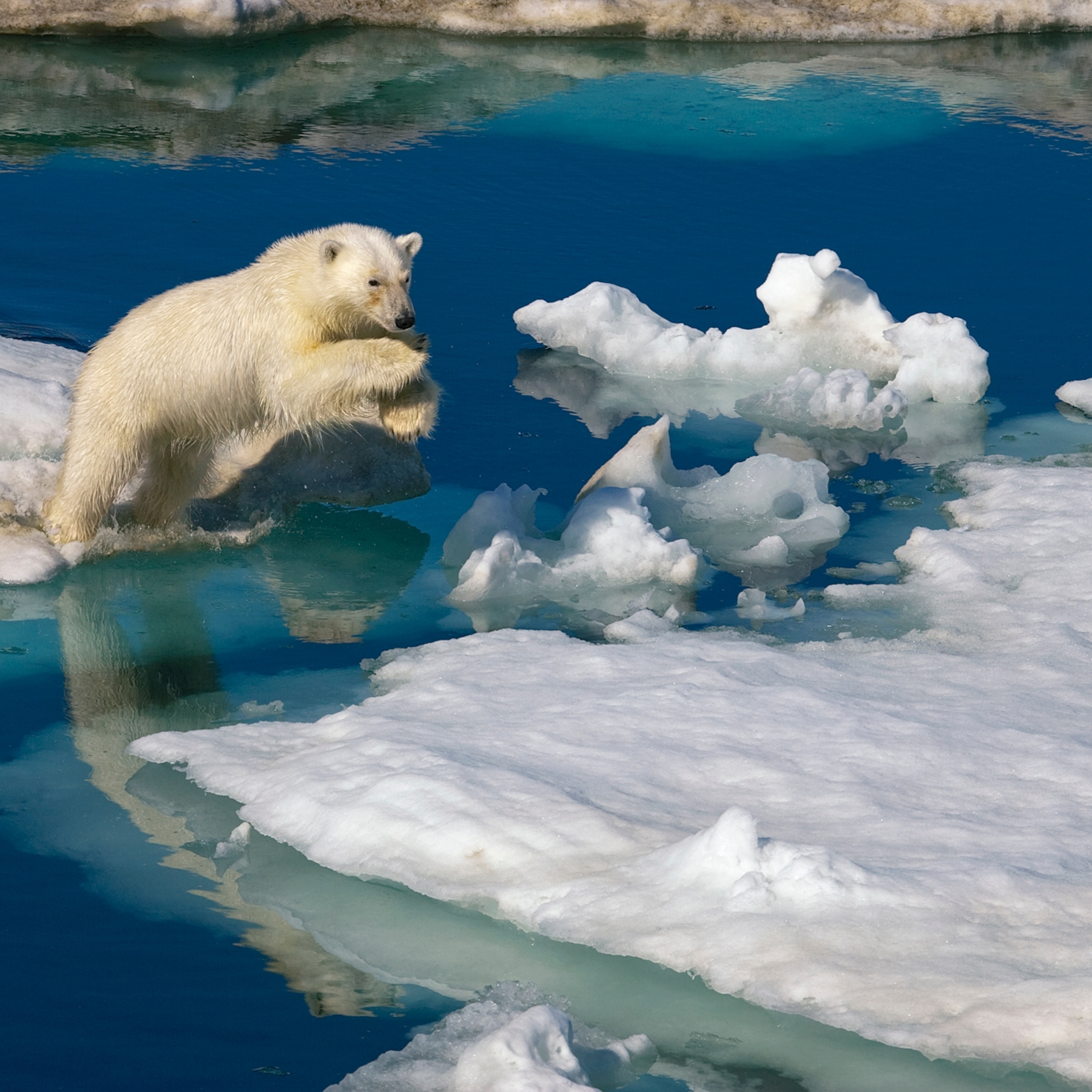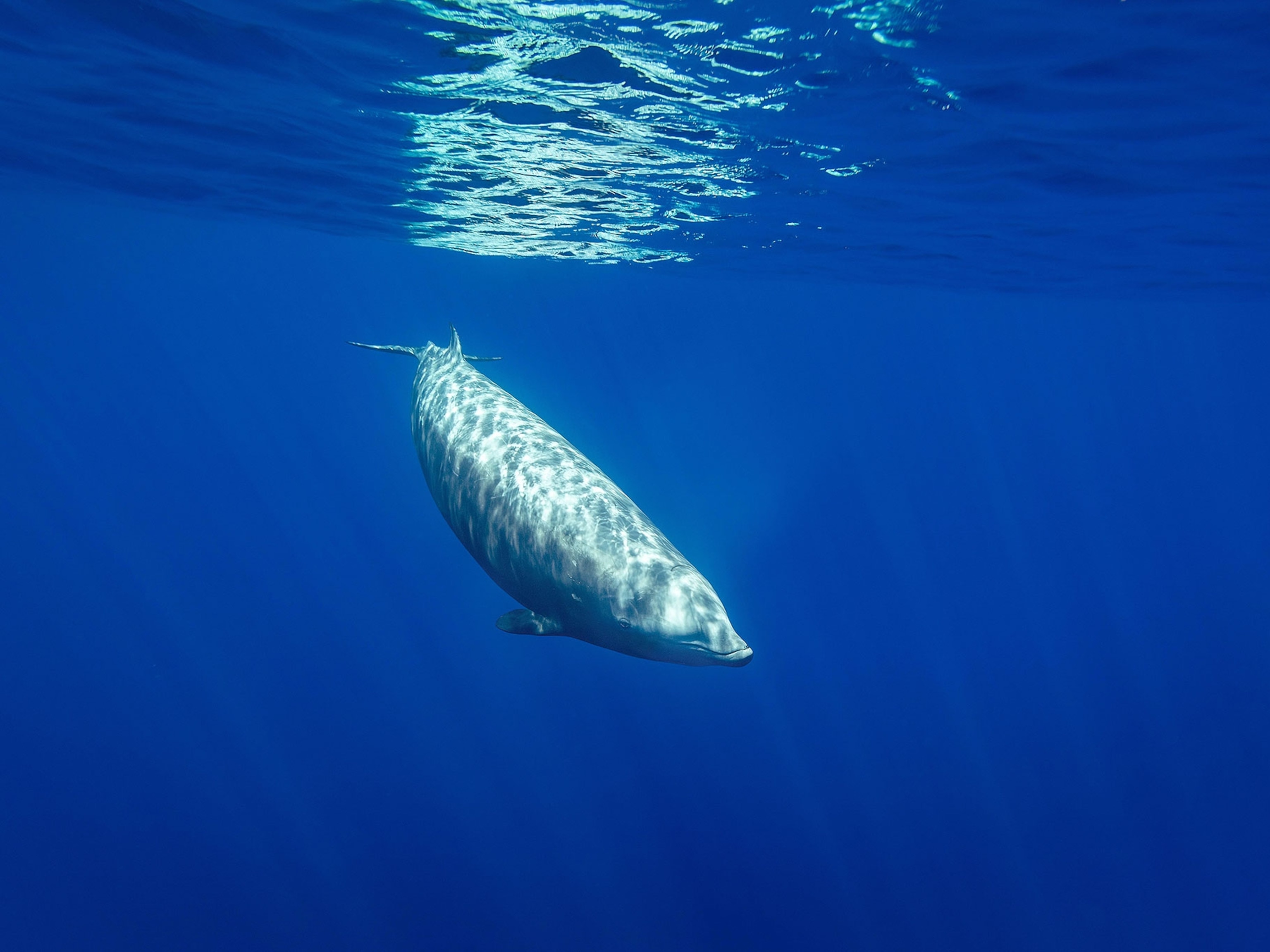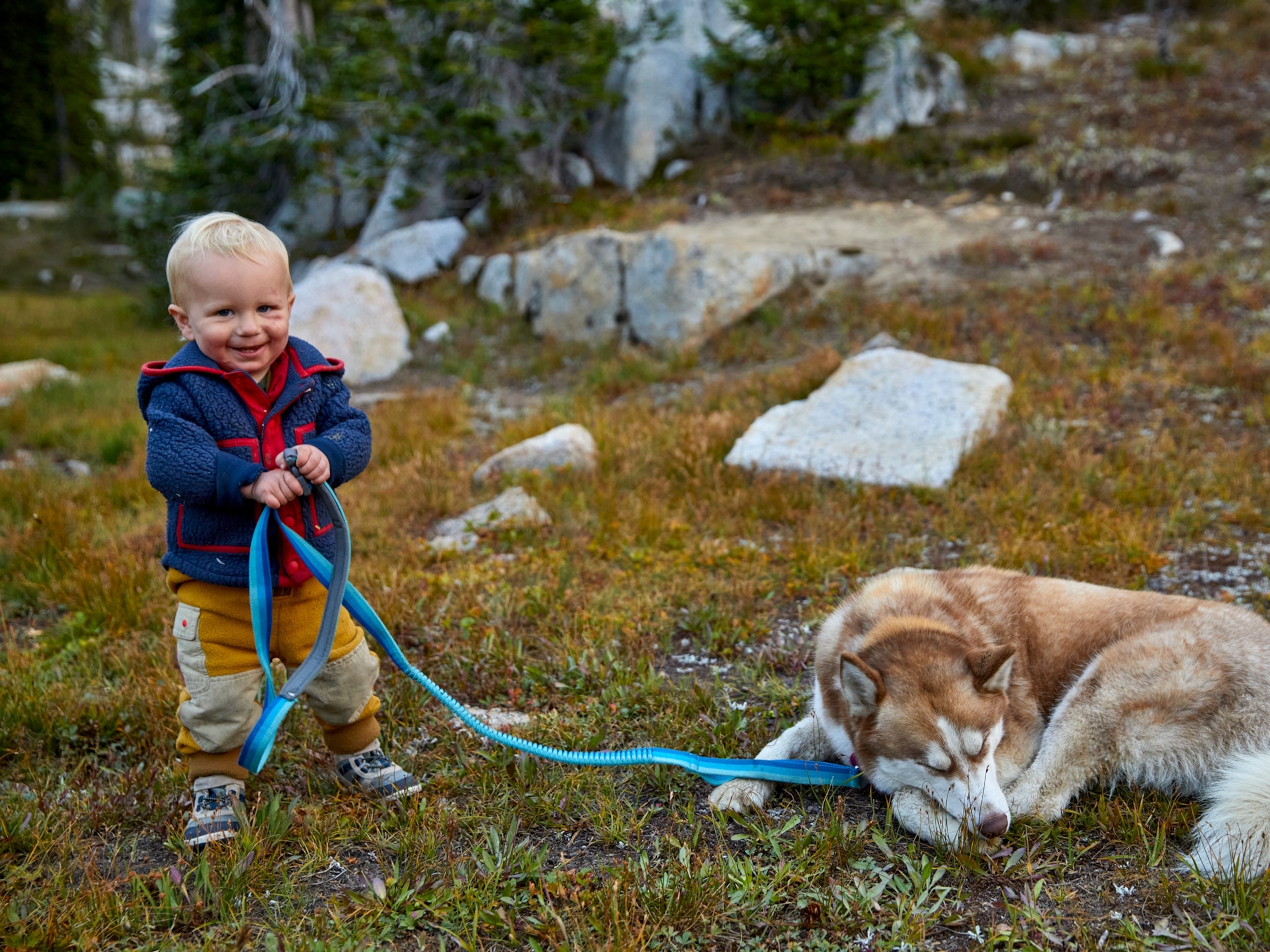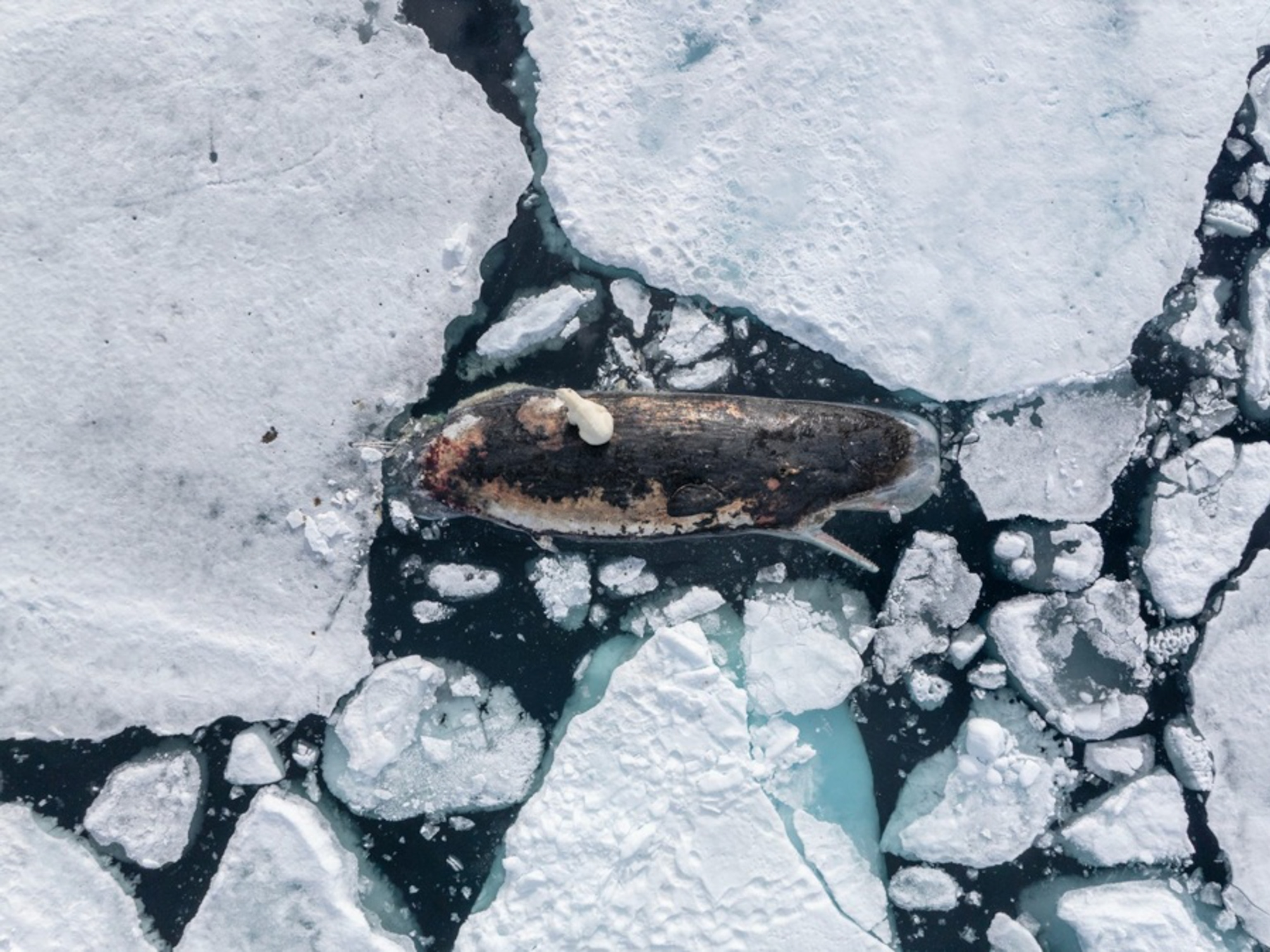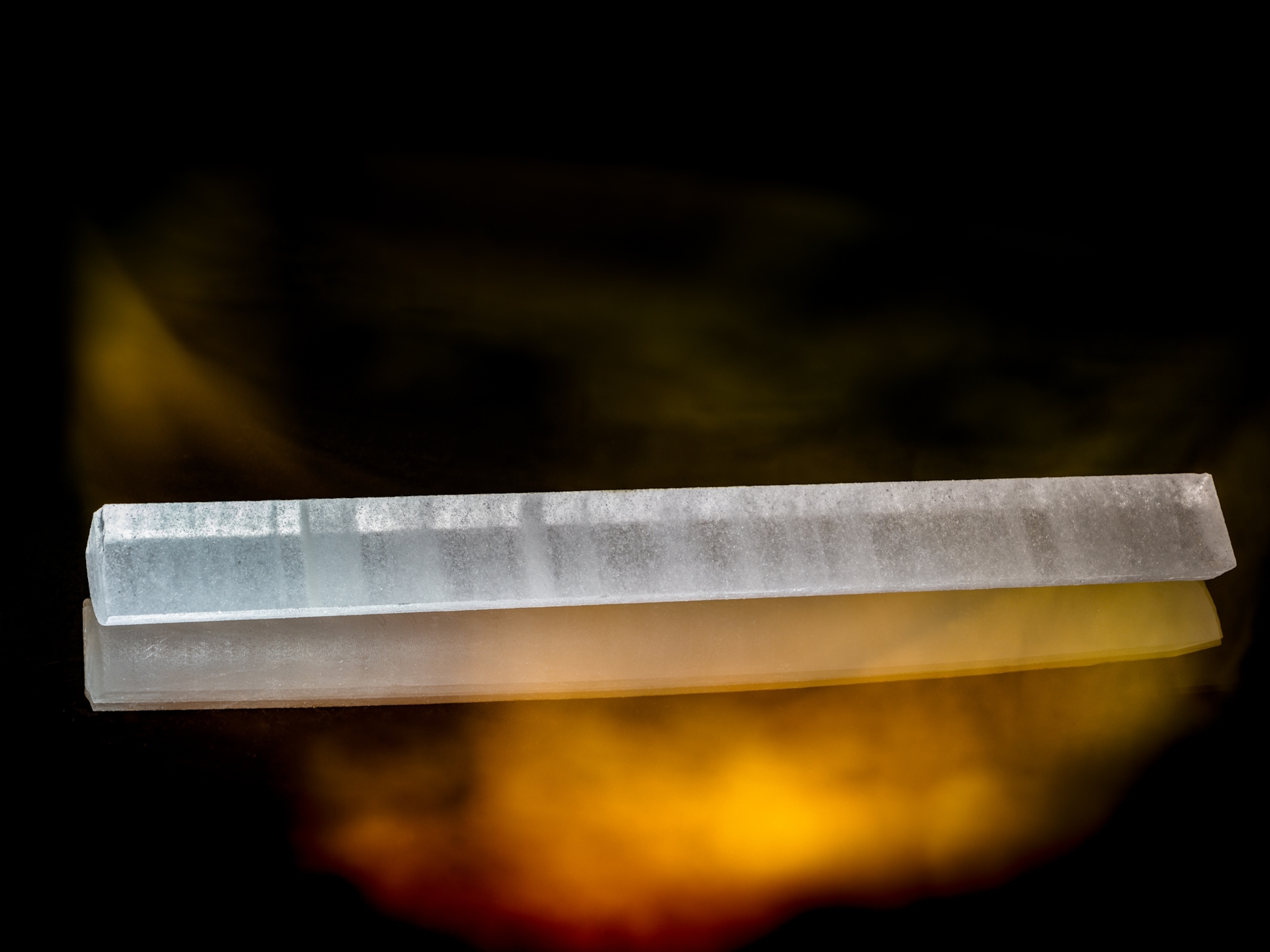
Baby Harp Seals Being Drowned, Crushed Amid Melting Ice
Global warming is melting sea ice the pups need for survival.
Harp seal pups are taking a hit due to global warming, according to the first study of its kind.
Ice-busting storms and warmer waters fueled by rising temperatures are diminishing the ice cover that harp seals need to survive during their first vulnerable weeks of life.
Without thick, solid ice expanses, seal babies drown or are crushed by broken-up chunks of ice.
For the harp seals, "good ice is about 30 to 70 centimeters [12 to 28 inches] thick and covers 60 to 90 percent of the water," said marine biologist Garry Stenson, who works for Canada's Federal Department of Fisheries and Oceans and helps to monitor and assess harp seal populations.
But ice cover in the sub-Arctic and North Atlantic Ocean has declined about 6 percent per decade since the 1970s. (Read "The Big Thaw" in National Geographic magazine.)
And as climate change continues to degrade the amount of good ice, the average pup survival rate is likely to drop over the years, experts say.
"Some years, when there's poor ice in a given pupping ground, essentially all of the pups don't make it," said study leader David Johnston, a marine biologist at Duke University.
In 2007, for example, more than 75 percent of pups in Canada perished because of poor ice conditions—in 2010, almost none survived, Johnston said.
Harp Seal Biology
Harp seals are by no means endangered, and people hunt the animals to sell their fur, skin, and meat.
(Related: "Controversial Seal Hunt Delayed 2nd Year Due to Ice Breakup.")
Four healthy harp seal populations pepper the northern reaches of Earth: Two in northeastern Canada (together about 8 million strong), one in eastern Greenland (about 650,000) and one in northwestern Russia (about 1.3 million).
Most seals migrate to Arctic waters for the summer, winter, and fall to feed. Around February and March, pregnant females navigate back to one of the sub-Arctic breeding grounds to birth and nurse their pups on the ice.
Pups are weaned in only 10 to 12 days, during which time the pups' masses double. After nursing, the mothers leave their pups and enter the ocean, where males swarm to impregnate them again—but females don't implant their embryos until three months later.
Alone on the ice, the weaned pups convert their mothers' fatty milk into flesh and bone for the next couple of weeks and then begin dipping into the water and learning to eat on their own.
Understanding Harp Seal Decline
To understand how climate variations are affecting sea ice—and how ice loss is affecting harp seal pups—Johnston and his team conducted three major studies, the first in 2005.
(See pictures of how climate change is changing the Arctic.)
The initial two studies examined the effects in Canada of the North Atlantic Oscillation—the difference between subtropical and polar atmospheric pressure, which pushes storms in the Northern Hemisphere to move from west to east.
The oscillation "basically governs the strength and track of storms, and sea ice formation and persistence across the entire North Atlantic," Johnston said. "We needed to understand shorter-term climate variation before looking at the long-term effects." (Take a water-and-climate change quiz.)
The third and most recent paper tied together variations in the North Atlantic Oscillation, long-term climate change, sea ice, and seal-pup death rates for the first time.
"It's really difficult to study this. There's a huge void of quantitative information about seal pup mortality," Johnston said. "So, we turned to the stranding record."
For the past few decades, groups of New England volunteers have walked their local beaches and reported dead, stranded seals. This gave Johnston and colleagues a measure of seal-pup deaths to compare with oscillation-affected sea ice.
Their results revealed that seal-pup deaths rose and fell with sea ice loss driven by fluctuations in the North Atlantic Oscillation, which are in turn caused by climate change.
"This is something we knew about awhile ago, but it's complicated," said the Canadian fisheries department's Stenson, who wasn't involved in Johnston's research.
Stenson added that Johnston and colleagues' analysis is "deeper than anyone has done in the past."
"We know that bad ice affects pup mortality, and that sea ice has been declining," Stenson said. "You have to account for that or you can't understand the population dynamics."
(Also see "Longest Polar Bear Swim Recorded-426 Miles Straight.")
Avoiding a Conservation "Train Wreck"
Though harp seals are not rare, Johnston and other researchers are concerned for the animal's future.
The new study adds to evidence that climate change, since the 1970s, has reduced the only birthing grounds that harp seal populations have ever known.
The harp seal's ability to weather long-term climatic changes in unknown, but it's not too late to avoid a "conservation train wreck," Johnston said.
"We should control what we can control. We can't control the reproductive biology of seals, or where and how ice forms in their breeding habitats from year to year," he said.
"What we can control is human behavior."
The harp seal study was published January 4 in the journal PLoS ONE.


